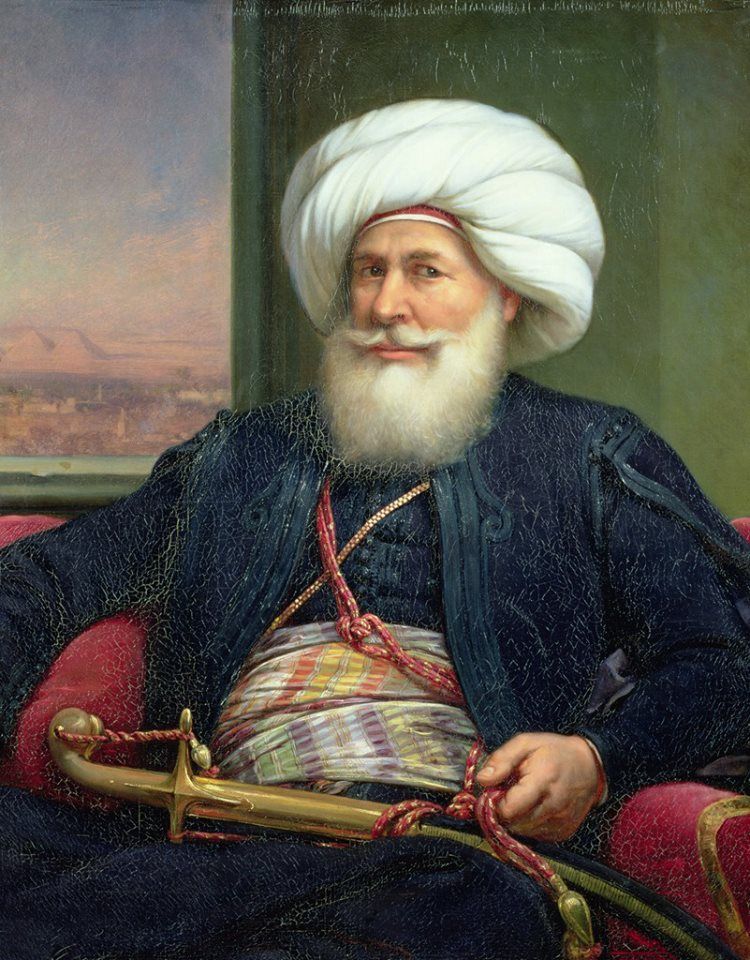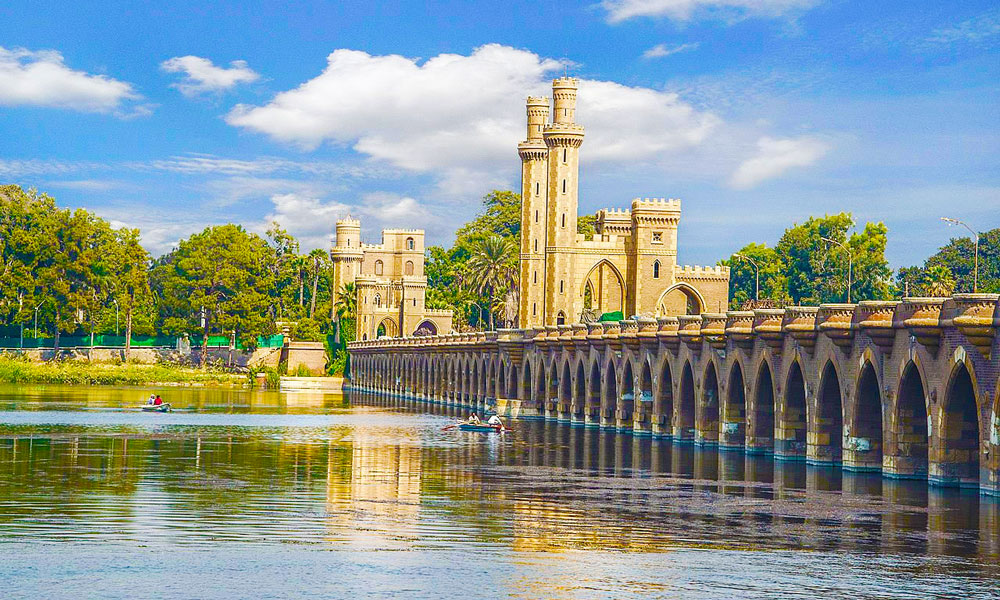
Muhammad Ali Pasha "4 March 1769 – 2 August 1849" started as an Ottoman Albanian commander in the Ottoman army and rose to the position of the ruler of Egypt. He is regarded as the father and founder of modern Egypt due to the extensive reforms to the economic, military, and cultural aspects of Egypt. He used his leadership skills, political intelligence, and cunning to bring peace, prosperity, law, and order to Egypt which was transformed into a true superpower and great influences all over the world at the time.
In 1798, Egypt was under the weak leadership of the Ottoman Empire but was also occupied by the French forces under the control of Napoleon Bonaparte himself who destroyed the Mamluk rulers on the battlefield but in 1801 the French forces had to withdraw which left a vacuum which gave Muhammad Ali the chance to seize the moment appointed himself the ottoman "Wali" governor of Egypt to take control of the Ottoman army to re-occupy the province but he had other plans. He used his support of the general public and the religious establishment to work on taking more control and charge of the country and to eliminate the Mamluks who controlled Egypt for more than 600 years.
On the First of March in 1811, the Mamluks gathered in the Cairo citadel and Muhammad Ali’s troops began killing all the sixty-four Mamluks, including twenty-four commanders, he then dispatched his troops through Egypt to destroy any remaining traces of the Mamluk forces. He had a dream of creating his own dynasty and his own kingdom away from the decaying Ottoman Empire, that’s why he transformed Egypt into a regional power and declared himself the rightful successor. His dynasty ruled Egypt from its date of foundation in 1805 until 1953 AD following the Egyptian Revolution.

He launched an industrial age in Egypt as he built factories to produce sugar, glass, and textile that competed with the European product, and build ships, weapons for the new army, and navy. There was also a dark side to his master plan as he added excessive taxation to pay for all his expensive projects which led him to lose a great deal of his public support. His over-control of agriculture expanded his monopolization of world trade which led to a bad relationship and exchange with Britain which saw Egypt as a threat to their economical influence. He also tried to expand his empire by invading Syria in 1831 but was stopped by the great forces of Britain, France, and Russia. Muhammad Ali had no choice but to sign the 1841 treaty, which commands Muhammad Ali to be stripped of all the conquered territory except Sudan but in return granted the hereditary governorship of Egypt for life.
He passed the rule of Egypt to his son Ibrahim in 1848 that died shortly after and he died in 1849. He was able to leave a great legacy which shows in the famous Muhammad Ali mosque in Cairo. Under his rule, Egypt became a powerful nation afters series of rapid economical expansions and modernization plus he entered the international community of nations as an independent state, not as a province of the Ottoman Empire. He built a powerful army that depended on the scientific process, opened Egypt to European commerce and trade, and most importantly improved education to match European standards. He entered Egypt into industrial Egypt and created what has become known as modern Egypt.
Through our Egypt private tour packages, you will visit amazing places in the land of Pharaohs and will learn more about the culture of Egypt. Check below our tours and contact us to know more:
Private 4 Days Cairo Tour Packages for American Travelers 4 days Cairo Egypt Tour pa...
Tour Location: Cairo – Giza...
5 Days Cairo and Alexandria Tour Package For American Travelers 5 days Cairo and Ale...
Tour Location: Cairo/Giza/Alexandria...
6 Days Cairo, Luxor & Aswan Tour Package For American Travelers 6 days Cairo, Lu...
Tour Location: Cairo/Giza/Aswan/Luxor...
Amazing 7 Days Cairo and Hurghada Holiday for American Travelers 7 Days Cairo & ...
Tour Location: Cairo – Giza – Hurgh...









